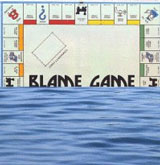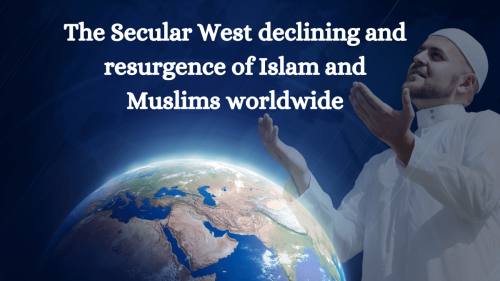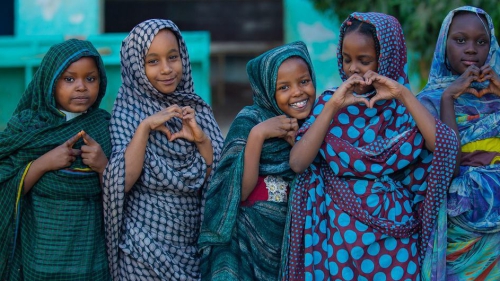ICC and al-Bashir Ocampo's Justice
 |
The crimes committed against innocent people in Darfur represent a shameful episode in the history of Sudan and its neighbors, including Chad, which has played a dubious role in sustaining the seething conflict. Equally disgraceful is the politicizing of the bloody conflict in ways that will ensure its continuation.
The decision of the International Criminal Court's (ICC) prosecutor-general, Luis Moreno- Ocampo, to file an arrest warrant for Sudan's current President Omar Hassan Al-Bashir, and the international responses to his decision, demonstrate both the politicizing of the crisis and the selectiveness of international law.
Consider this bizarre twist. The US Congress passed a resolution, on 22 June 2004, declaring that the violence in Darfur was state-sponsored genocide. The resolution - named the Darfur Peace and Accountability Act - was signed into law by President Bush in October 2006.
Between the vote and Bush's signature the United Nations conducted a sweeping investigation - unlike Congress's rash decision which was based almost entirely on lobby and interest group pressure - declaring, in early 2005, that both the government and militias were systematically abusing civilians in Sudan's western province. It insisted, however, that no genocide had taken place.
The US is not a signatory of the ICC - understandably so, given that many legal experts deem the war crimes of invading and occupying Iraq as the worst since World War II. Although the ICC is, in theory, an independent body, it often investigates or provides legal opinions on cases passed on by the United Nations Security Council which is dominated by the United States, its vetoes and foreign policy interests.
It is anomalous that Moreno-Ocampo's request adhered to Congress's political labeling of the conflict in western Sudan and not that of the United Nations' own comprehensive and less politicized report.
Equally interesting is the response of the US and other governments, as well as regional and international bodies to the decision.
The US, which like Sudan doesn't recognize the jurisdiction of the ICC, was pleased by the court prosecutor-general's move. "In our view, recognition of the humanitarian disaster and the atrocities that have gone on there is a positive thing," said US State Department Spokesman Sean McCormack.
China and Russia - both of which have immense and growing economic interests in Africa - found the decision unhelpful and called for restraint. It's not only the Sudanese government that they wish to woo but other African states, alarmed by the court's move which is likely to worsen the tribal war and jeopardize the safety of the people of Darfur and the numerous humanitarian missions and workers in the region. (The UN has already declared its intent to pull back staff from a joint UN-African Union mission, one welcomed by the Al-Bashir government and which is credited for contributing to the slight improvement in the situation there).
The African Union, often discounted, if not entirely undermined, by Western political institutions, has called on the ICC to suspend its decision until the crisis in Darfur is resolved. In fact, intense efforts have succeeded in bringing warring parties to the negotiation table and extracting important concessions that, with international support, could bring the crisis to an end. But the call made by AU chairman, Tanzanian Foreign Minister Bernard Membe, is unlikely to be heeded as economic and political interests in Darfur are too significant for Western countries to allow Africa's own leaders to meddle.
While some human rights organizations and many media pundits, largely based in Western capitals, welcomed Moreno-Ocampo's request - conveniently ignoring the hypocrisy of the decision and the mayhem and instability it will create in the already fractious region - others in Africa and the Middle East are not impressed. African and Middle Eastern media decried the selectiveness and rigidity of international law when the conflict concerns poor countries, and its blindness and flexibility when the perpetrators of crimes are countries that wield military and economic might, and often the power of veto.
The ICC was established in 2002, immediately before the US aggression against Iraq. Interestingly, the ICC's jurisdiction - for obvious reasons - doesn't include the crime of aggression. Equally telling is that the court has so far investigated just four conflicts - in Northern Uganda, Congo, Darfur and the Central African Republic. One cannot help but wonder if only Africans are capable of committing war crimes, crimes against humanity and genocide.
It's this selectiveness that makes Moreno-Ocampo's request a textbook example of the inner-workings of international law. It exposes governments like the US and Britain which condemn war crimes and authoritarian regimes in Sudan, Zimbabwe and elsewhere while perpetrating war crimes of their own, aiding and abetting authoritarian regimes in the Middle East, Africa and elsewhere, as hopelessly addicted to double standards.
For Moreno-Ocampo's decision - and the entire international legal apparatus in the West - to be taken seriously, impartiality and fairness are essential. They are qualities, however, that remain conspicuously absent, vetoed, or otherwise shunted, into the sidings of history.
Regardless of whether the ICC judges will honor Moreno- Ocampo's request to issue an arrest warrant for the Sudanese president the Darfur conflict cannot be settled by selective justice, self- serving politics or contract-seeking oil corporations. Justice in Sudan, or anywhere else for that matter, cannot be obtained through such practices which are at best "unhelpful" and at worse could be used by the international order's self-appointed policemen to further legitimatize their destructive policies of "intervention" - economic sanctions, war, and the rest.
-Ramzy Baroud (www.ramzybaroud.net) is an author and editor of PalestineChronicle.com. His work has been published in many newspapers and journals worldwide. His latest book is The Second Palestinian Intifada: A Chronicle of a People's Struggle (Pluto Press, London).
Topics: Darfur, George W. Bush, Human Rights, International Law, United Nations Channel: Opinion
Views: 3088
Related Suggestions
As this extract will show when it came to Iraq he chickened out. Maybe they should prosecute him for aiding and abetting war crimes in Iraq.
quote:
In March 2003, the United States and its allies, the United Kingdom, Australia, and Poland invaded Iraq. The UK, Australia, and Poland are all state parties to the Rome Statute which established the ICC and therefore their nationals are liable to prosecution by the court for the violation of any relevant international criminal laws. The Office of the Prosecutor of the ICC reported in February 2006, that it had received 240 communications in connection with the invasion of Iraq in March 2003 which alleged that various war crimes had been committed.
On 2006-02-09, Luis Moreno-Ocampo, in his position as Prosecutor of the ICC, published a letter that he had sent to all those who had communicated with him concerning the above, which set out his conclusions on these matters, following a preliminary analysis of the complaints. He explained in his decision letter, that essentially two sets of complaints were involved. He explained that the legality of the invasion was not within his competence because crimes against peace have not yet been incorporated into the Rome Statute; and that in the other cases none of them were of sufficient gravity to warrant forwarding to the ICC.
UNQUOTE:
http://en.wikipedia.org/wiki/Luis_Moreno-Ocampo
So what else is new?
The AU and OIC have a role to play in ensuring that the Darfur and Zimbabwe crises are resolved at the earliest. Get on with the job then. History will judge them as bystanders whilst humanity was suffering. They must not abscond there responbilities and then stand by and criticise politically driven institutions such as the ICC.





























